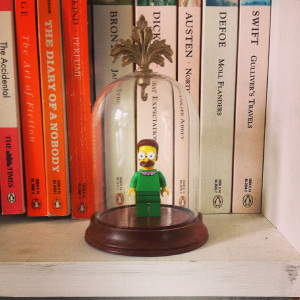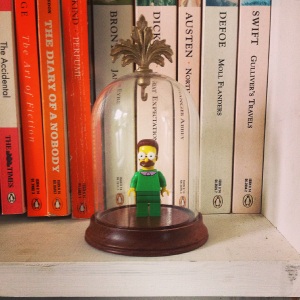
06 May be alive: to uncertainty
In a world that esteems the strong and applauds the definite, to admit you might not know is a scary thing.
I am getting used to this feeling, of flux, of in between, of uncertainty.
“If my mind could gain a firm footing, I would not make essays,
I would make decisions;
but (my mind) is always in apprenticeship and on trial.” Montaigne
Before.
As a child I was taught life in binary. Right and wrong. Good and bad. Failure and success. Primary colours. This gave me a safe place to grow. A space where I understood the rules of how to behave and what was expected of me. I knew how to make people like me and how to perform to achieve good results.
Somewhere in my teenage years I missed the directive that told me it was okay to change, to see subtlety and nuance. That uncertainty was allowed. That there isn’t one way to be. One way to understand. One path to follow. Although on the outside there was some (moderate) rebellion taking place, my internal barometer for achievement, performance and doing the right thing, never really faltered.
My life looked a bit like the film, Dick Tracy. In this film, to evoke the cartoon strip on which it is based, the director has only used one shade of each colour, and only 7 colours in total. This resulting design is visually simplistic, and the emotions depicted take on a primitive, childlike quality. As I grew up I tried to squeeze the multitude of colours I saw around me through a lens which only allowed for limited hues.
I spent many years trying to fit my adult brain, with all it’s exploding ideas and thoughts and sensations and contradictions into a child sized box.
There were many things that I didn’t allow myself to consider because I thought I already knew the answers. I already knew what was right and what was wrong. I knew how the good girl should respond, I knew what was expected. I thought it was the only way to be.
This way of understudying limits possibilities and denies the joy of new discoveries.
It makes life small.
“We need to forget what we think we are,
so that we can really become what we are“
Paolo Coelho (italics mine)*
Then:
As I emerged from the fog of raising small children, I realised I had no clue who I was, or what I thought about anything. And after the nervous, insecure months, where I was sure it was just me and if I tried harder to pull myself together I could figure it all out and become interesting and engaged again, I allowed the inevitable collapse.
Giving up on everything, and choosing to forget what I believed I should, ought, and must do and think, gave me my life back.
Dr Cornell West puts it better,
‘Learning to die, in order to learn how to live’.**
Learning to die is painful.
Firstly, recognising I had been wrong. I saw for the first time the things I thought kept me safe – the black and white understanding of everything (in my faith, and understanding of who I was, and how I made meaning in my life) – had been crippling me. It had stopped me evolving, engaging, and connecting with other people.
It hurts to tear down what you know, and it’s scary.
At the beginning you feel vulnerable and exposed. But these rigid, immovable structures in my thinking, that had made me feel secure, had become a prison.
Learning to die is also joyous.
Because it allows a re-birth. A new start. And not just one, but a perpetual new start. Where no idea is a bad idea, where every thought is worthy of examining. Where I have learnt to listen to the nudge of my conscience and the pull of my heart.
I am allowed to not know the answer, in fact this is a good place to start. ‘I don’t know’ is a valid response.
Now.
Paolo Coelho again:
“You have to learn how to live with your contradictions. Otherwise you will become a block of stone, that never changed.”*
There is a part of me still longs for certainty.
And these structures of performance and achievement and certainty look like a safe place to live. They appear as though they will protect me from failure, from humiliation. But this is a lie that sells me short.
I want the reassuring clarity of ‘I was sick, now I am well’, or ‘I was confused, now I know’, or even ‘I used to doubt, now I believe’.
Instead I have realised the life-giving truth is that I am like the Father in Mark’s gospel who cries out;
“Lord I do believe, help my unbelief.”
Both. And.
If we stay present despite the perplexity and confusion around us – and if we are able to be open about this, to discuss and debate and engage – we grow.
When you think you already know the answer, life has little to offer you.
There is no space for exploration, for new discovery.
Being open to uncertainty opens possibilities.
It makes life bigger.
* Both of these quotes are taken from a conversation between Krista Tippett and Paolo Coelho, broadcast as a podcast for On Being. You can find it here
** The quote from Dr Cornell West is taken from a talk he gave to Sheffield’s Student Union in 2013. You can find the video of this talk here



No Comments